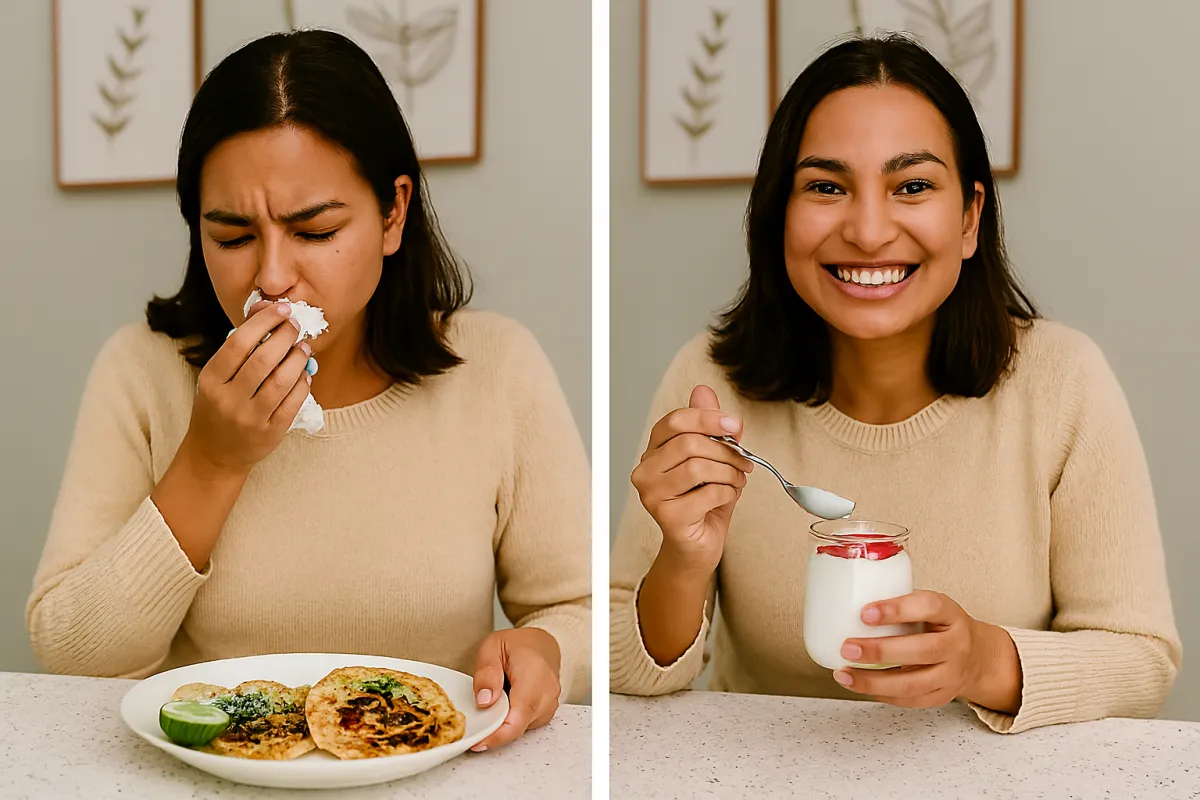
Are you feeling irritable, tired or anxious?
Heal by Improving Your Gut Health
Hasn't it happened to you that you are irritable, or feel very tired or anxious... and you don't even know why? Maybe it's not your head. Has it ever occurred to you that perhaps the intestines are responsible for your emotional and mental state? Hippocrates, the Father of Medicine, said "Health Begins in the Intestine."
Imagine your gut as a lush garden. The bacteria, fungi and viruses that live there are the seeds and nutrients that keep that garden healthy. When the balance is broken, weeds appear: chronic inflammation, leaky gut barrier, and erroneous chemical signals that reach the brain. This disharmony has been linked to neurological disorders that until recently we thought were isolated in the head.
What is the microbiota? It is a term to express communities of beneficial microorganisms that live in many parts of the body, such as skin, mouth, genitals, etc. For example, the microbiota of the skin defends us from other microorganisms that can damage it, the microbiota of the mouth helps the initial digestion of food and in the case of mental health, the microbiota of the intestine helps, among other things, in metabolism, produces essential vitamins and competes for nutrients with other microorganisms that cause disease.so they help prevent them from establishing themselves in our body.
By normalizing the microbiota, many patients experience improved mood and relief from anxious symptoms.
Against this backdrop, it is clear that we need to have a varied and adequate microbiota to protect ourselves from neurodegenerative diseases.
Where to start? Well, the easiest thing to do is to have the microorganisms we need in the first place, which is known as probiotics, and give them the nutrients that our microorganisms like, which would be prebiotics, to keep them happy. We will achieve this if we eat a diet that provides us with probiotics and prebiotics.
The composition of the microbiota is unique to each person.
Key features include:
Ferment fibers and produce short-chain fatty acids such as butyrate, essential for the colon and metabolism.
Synthesize vitamins B and K, and facilitate the absorption of minerals such as calcium, magnesium and iron.
Protect against pathogens (microorganisms that cause diseases), strengthening the immune system.
Regulate inflammation and engage in two-way communication with the central nervous system: the famous gut-brain axis (which we talked about so much last time).
Probiotics, what are they? Probiotics are live microorganisms that, when consumed in adequate amounts, confer a health benefit to the host. Mainly lactic acid bacteria (Lactobacillus or Bifidobacterium), but also certain yeasts such as Saccharomyces boulardii.
How do they work? They compete with harmful microorganisms, produce antimicrobial and immune response-modulating substances, strengthen the intestinal barrier, improve digestion and can produce vitamins and neurotransmitters.
Benefits:
Prevention and management of diarrhea, irritable bowel syndrome, lactose intolerance and inflammatory bowel diseases.
Boosting general and specific immunity.
Mental health support: reduction of anxiety, depression and stress.
How to promote intestinal microbes? With prebiotics, these are compounds that you don't digest, which serve as a selective "fertilizer" for the beneficial bacteria in the colon, especially bifidobacteria and lactobacilli.
How do they work? When they reach the colon intact, they are fermented by the microbiota, which generates short-chain fatty acids and anti-inflammatory molecules. These help mineral absorption, regulate intestinal transit and strengthen defenses.
Benefits:
They strengthen the intestinal barrier and immune health (defense system).
They prevent constipation and regulate intestinal transit (going to the bathroom).
They help control cholesterol and glucose.
They decrease the risk of chronic diseases, infections, and allergies.
Remember: the best diet is the one that you can sustain, enjoy and that nourishes your allied bacteria.
Scientifically validated recommendations to strengthen the microbiota in a sustainable way
1. Prioritize fresh, whole, and seasonal foods.
2. Consume at least 25-30 g of fiber per day. 3. Include fermented foods every day.
4. Avoid ultra-processed foods and limit additives.
5. If you choose probiotic supplements, ask your doctor.
6. Make sustainable changes.
7. Maintain healthy habits outside of food. Such as regular exercise, adequate sleep and stress management, which also contribute to the balance of the microbiota.
Don't obsess over perfection: the goal is for 80% of your diet to be real, fresh and varied; the other 20% can be more flexible, without guilt.
It's clear: what you eat shapes your microbiota, and your microbiota determines how you feel, how you think, how you resist infection, and how you relate to the environment.
Choose fresh, whole, varied foods, rich in fiber, polyphenols and fermented, and if possible, organic. Avoid ingesting ultra-processed foods and additives on a regular basis. Feed your "good bugs" and they will return the favor with energy, mental clarity, better defenses and even good humor.
Health – mental and physical – always begins in the intestine, as the Greek Hippocrates said, there is your opportunity to do something! And keep in mind that the best diet is the one you can sustain, enjoy and that provides all the nutrients you need.
The information provided is in no way a substitute for medical advice. I am a microbiologist and plant-based food specialist, not a doctor. If you have a weakened immune system, intestinal disease or other serious condition or have recently had surgery, talk to your health care provider before making changes to your diet.
